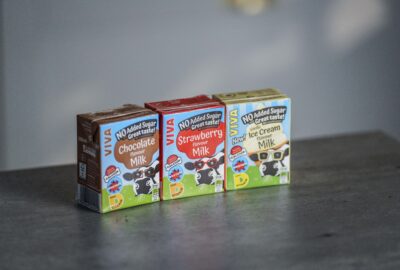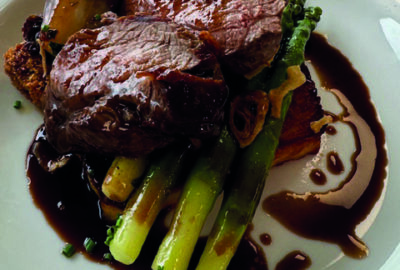The hospitality industry has supported Ukraine in many ways since Russia’s invasion two years this February. Activities have included the introduction of Ukrainian dishes on menus, promoting Ukrainian produce and training Ukrainian refugees.
The #CookForUkraine global movement, powered by the hospitality sector has encouraged operators to add a Ukrainian inspired item or dish to their menu, asking for a voluntary donation to the bill to support those most affected by the ravages of war. Chefs such as Jamie Oliver, Yotam Ottolenghi and Angela Hartnett took part and so far, it has raised £2m for Unicef, Choose Love and The Legacy of War Foundation’s Emergency Relief in Ukraine.
As part of the campaign, consumers are invited to share pictures, recipes and stories on social media.
Olia Hercules, a well-known Ukrainian cook and food writer, based in the UK and a founder of the #CookForUkraine appeal says, “It’s incredible to see everybody support the appeal. There are officially 13.8k social media posts. This means that a huge amount of people are willing to support and discover Ukrainian food and culture.”
Olia has actively promoted Ukrainian produce and recipes through her cookbooks and her subscription service on the Patreon platform, where she provides recipes and content to raise funds.
At the same time, Ukrainian restaurants are springing up across the nation, further promoting the country’s food and culture. One of the most well-known is Mriya restaurant in London’s Chelsea, founded by Yurii Kovryzhenko, a prominent Ukrainian chef and his partner Olga Tsybytovska, where virtually all the staff are Ukrainian refugees. The concept has proven popular, and their recipes have featured in the Waitrose Weekend newspaper and Sainsbury’s magazine, encouraging consumers to cook Ukrainian dishes at home.
Olga says, “In our restaurant around 60% of guests are non-Ukrainian. For me, it means that there is an interest in Ukrainian cuisine and culture among British society. People are curious to discover the country in terms of food.”
The Discover Ukraine section of the Eurovillage created as part of the Eurovision song contest in May last year offered visitors a chance to try Ukrainian dishes. United by Food – a collaboration between the London-based Ukrainian restaurant Dnister and Ukrainian chef Ievgen Klopotenko organised the event. According to social media, the Discover Ukraine section was one of the most popular features during Eurovision, with many visitors stating they wished Ukrainian food and drink was more readily available. The impact on operators in the surrounding area was significant, as restaurants such as the Art School in Liverpool began to introduce Ukrainian inspired dishes to their menus.
Ukrainian wine has also made an appearance with the opening of Wines of Ukraine in London, showcasing twelve wineries from six of Ukraine’s wine regions. Svitiana Tsybak, the organisation’s co-founder says, “Now is the time to show our wines in the UK not least because of the country’s support for Ukraine, which we very much appreciate.”
As we enter the third year of war between Russia and Ukraine, the support offered to the Ukraine by the UK’s hospitality sector has been unyielding. As such, the Ukrainian influence on our multi-cultural food scene is rapidly evolving, and it will most likely be forever changed by the conflict.


